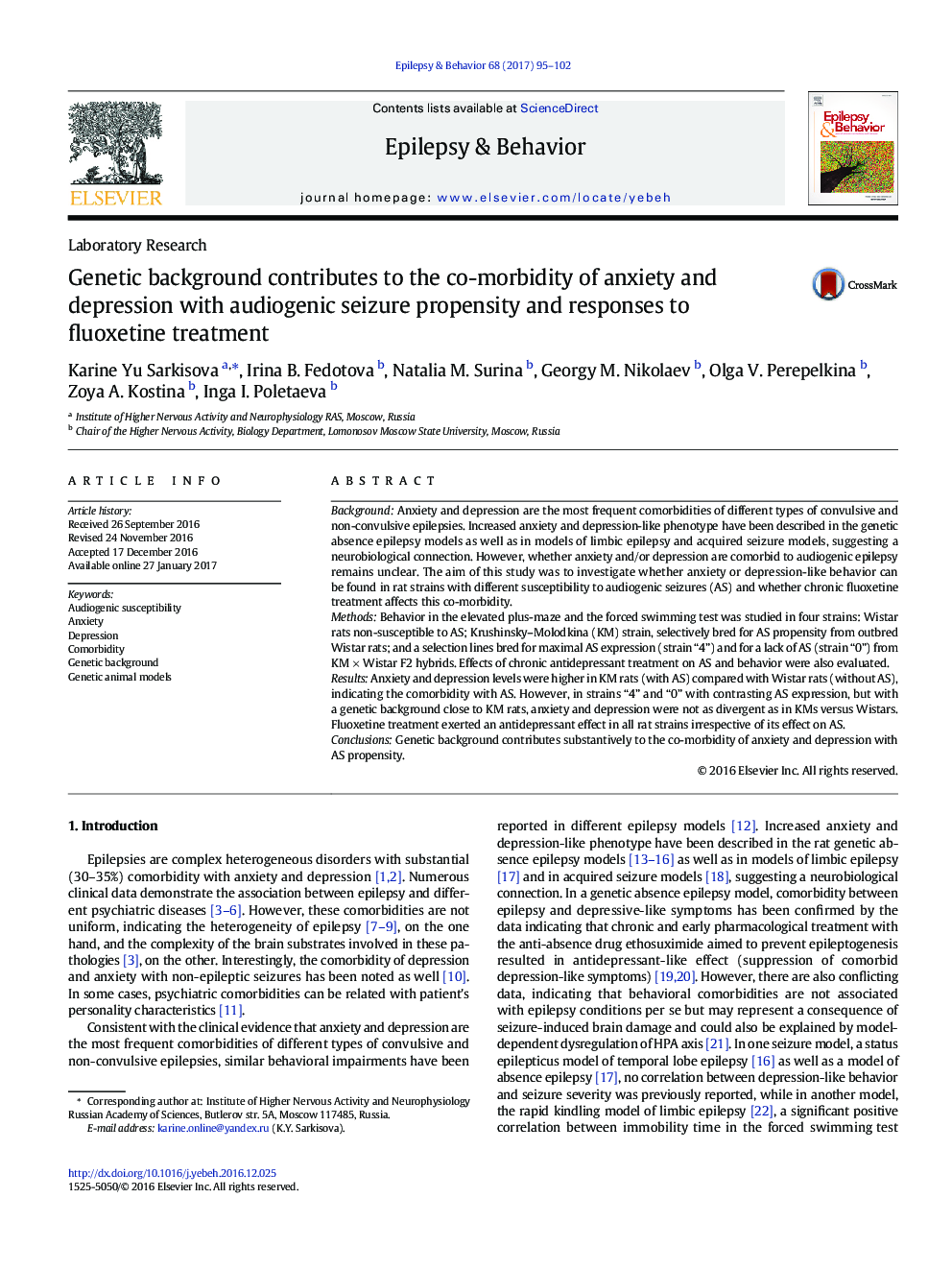| Article ID | Journal | Published Year | Pages | File Type |
|---|---|---|---|---|
| 5628062 | Epilepsy & Behavior | 2017 | 8 Pages |
â¢Here we examined whether anxiety and depression are comorbid to audiogenic epilepsy.â¢Fluoxetine treatment exerted antidepressant effect irrespective of its effect on AS.â¢No link between anxiety and AS propensity has been revealed.â¢Genetic background contributes to the comorbidity of depression and AS propensity.
BackgroundAnxiety and depression are the most frequent comorbidities of different types of convulsive and non-convulsive epilepsies. Increased anxiety and depression-like phenotype have been described in the genetic absence epilepsy models as well as in models of limbic epilepsy and acquired seizure models, suggesting a neurobiological connection. However, whether anxiety and/or depression are comorbid to audiogenic epilepsy remains unclear. The aim of this study was to investigate whether anxiety or depression-like behavior can be found in rat strains with different susceptibility to audiogenic seizures (AS) and whether chronic fluoxetine treatment affects this co-morbidity.MethodsBehavior in the elevated plus-maze and the forced swimming test was studied in four strains: Wistar rats non-susceptible to AS; Krushinsky-Molodkina (KM) strain, selectively bred for AS propensity from outbred Wistar rats; and a selection lines bred for maximal AS expression (strain “4”) and for a lack of AS (strain “0”) from KMÂ ÃÂ Wistar F2 hybrids. Effects of chronic antidepressant treatment on AS and behavior were also evaluated.ResultsAnxiety and depression levels were higher in KM rats (with AS) compared with Wistar rats (without AS), indicating the comorbidity with AS. However, in strains “4” and “0” with contrasting AS expression, but with a genetic background close to KM rats, anxiety and depression were not as divergent as in KMs versus Wistars. Fluoxetine treatment exerted an antidepressant effect in all rat strains irrespective of its effect on AS.ConclusionsGenetic background contributes substantively to the co-morbidity of anxiety and depression with AS propensity.
